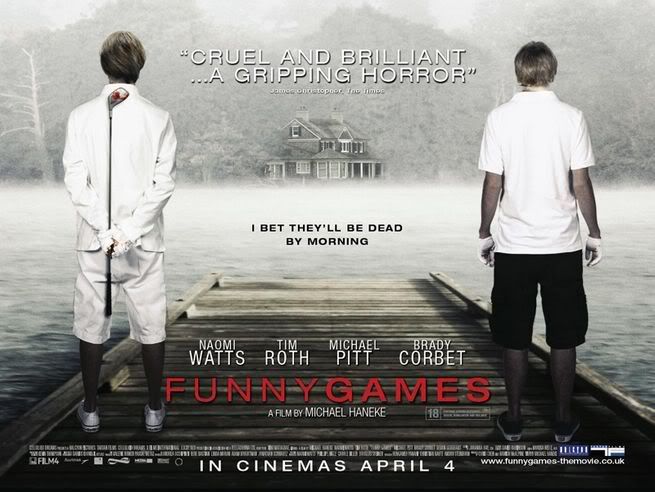By Daniel Hui
Bright Lights Film Journal

...
In the age where reality shows are being shot with several takes to hide technical mistakes, it says a lot about modern culture when exposing a film's manipulation becomes shocking for so many people. Throughout the history of drama and tragedy, audiences have been used to characters breaking the fourth wall (Greek choruses and Shakespearean asides). Cinema, in its symbolically voyeuristic darkened room (darkening the world outside and creating a new world to escape to), has primed audiences into accepting an idealistic totality that resolves its own problems. It is no wonder that cinema is the ideal tool for political propaganda. Movies are preoccupied with hiding (their artifice, manipulation or technique, and message), and wherever there is hiding, things must be held suspect. In the closing scene of Funny Games, the two killers debate the reality of what we see. It seems that in today's information-overload age, images are produced with such rapidity and ease that not much thought is given to their implications. Haneke's Funny Games attempts, at least, to restore to images some of their responsibility — the implication that our gaze and its demands are never innocent as such.
To Read the Entire Essay

No comments:
Post a Comment